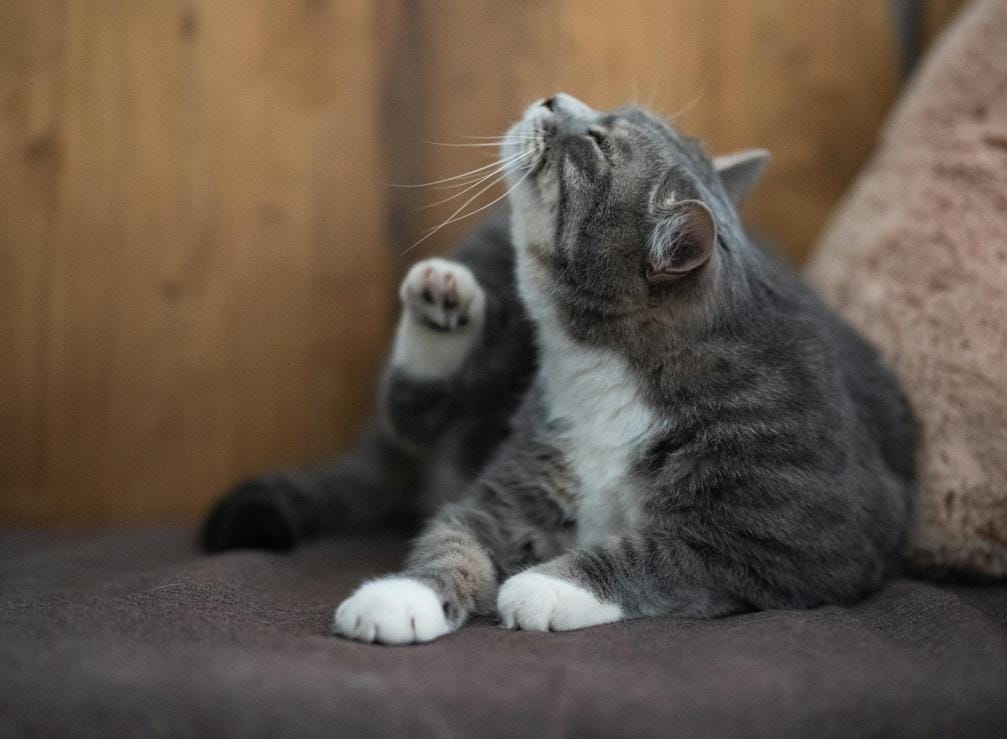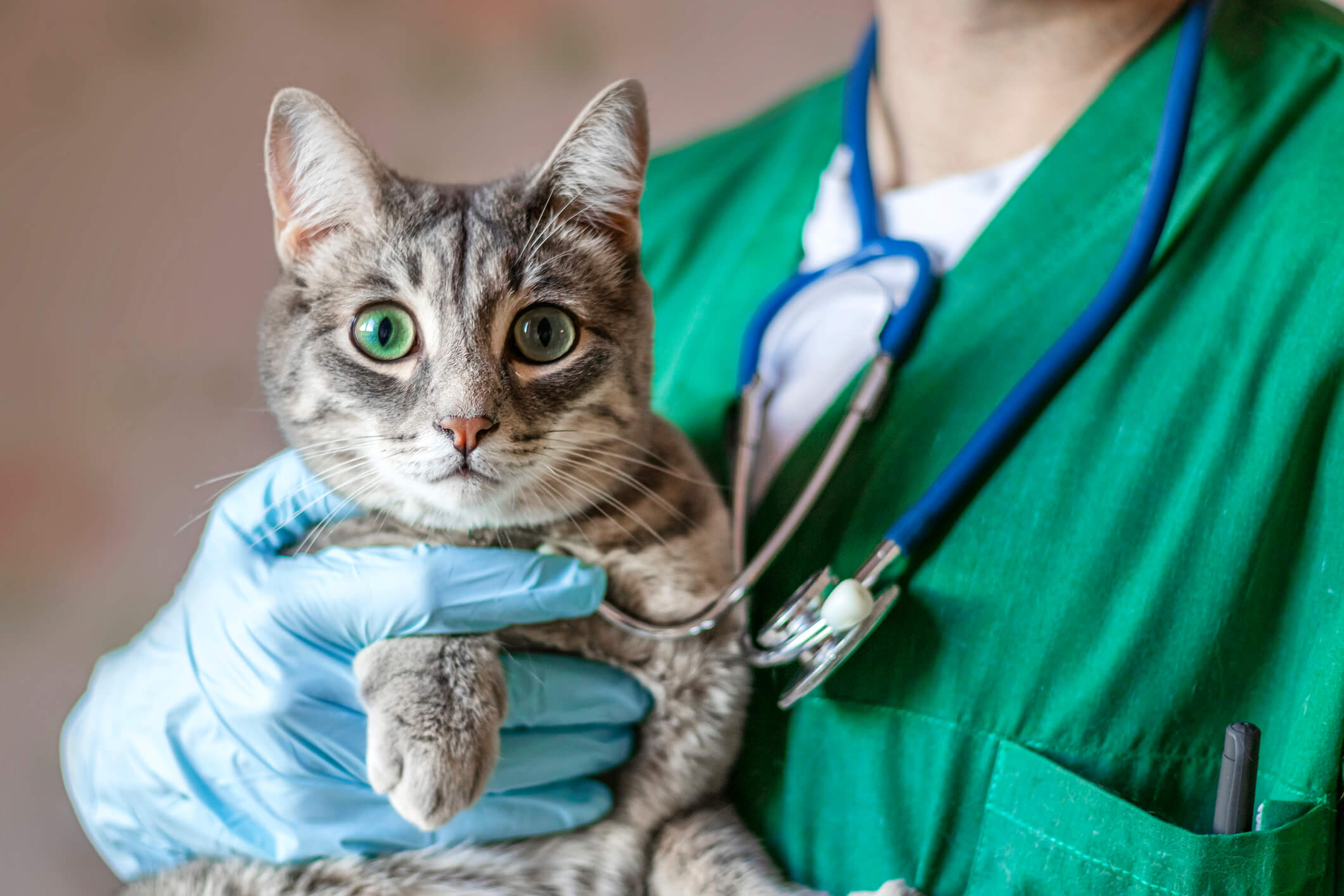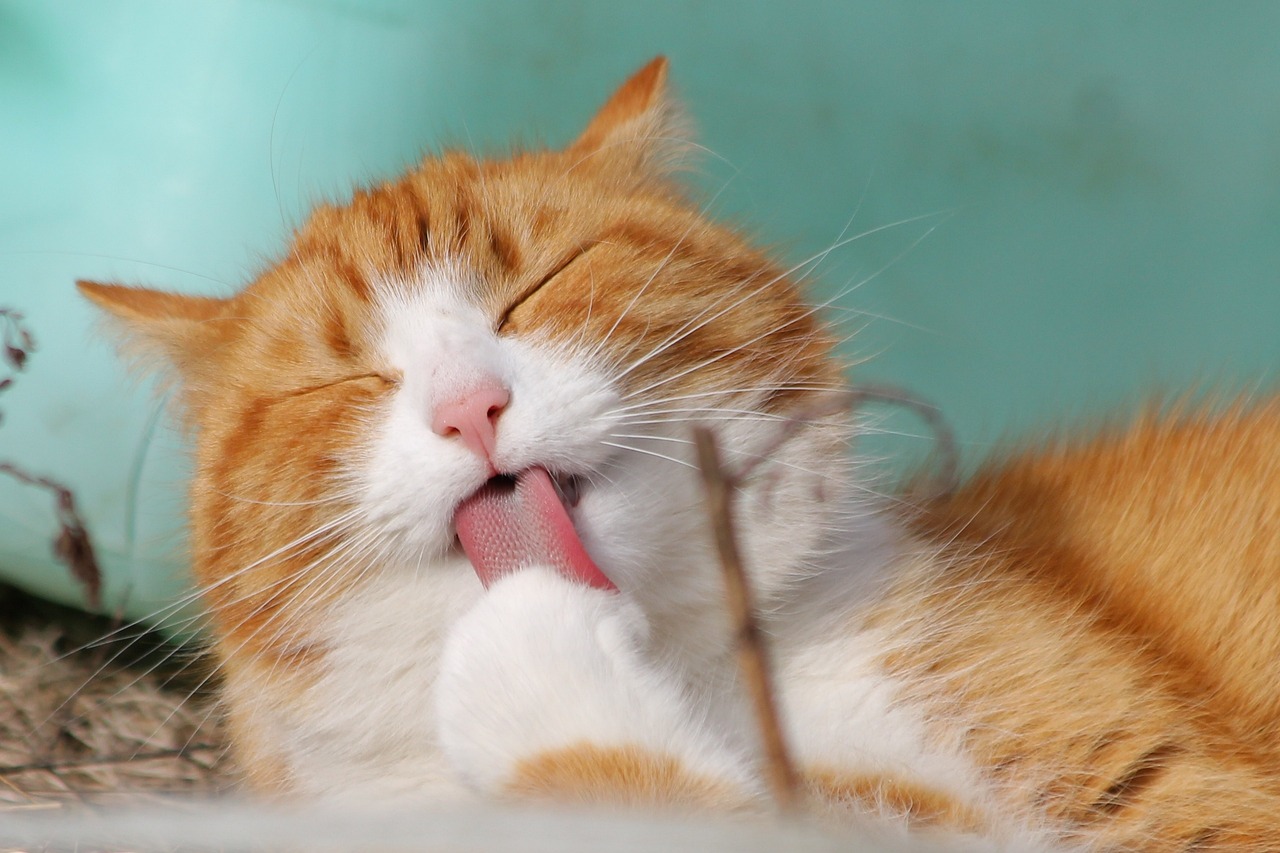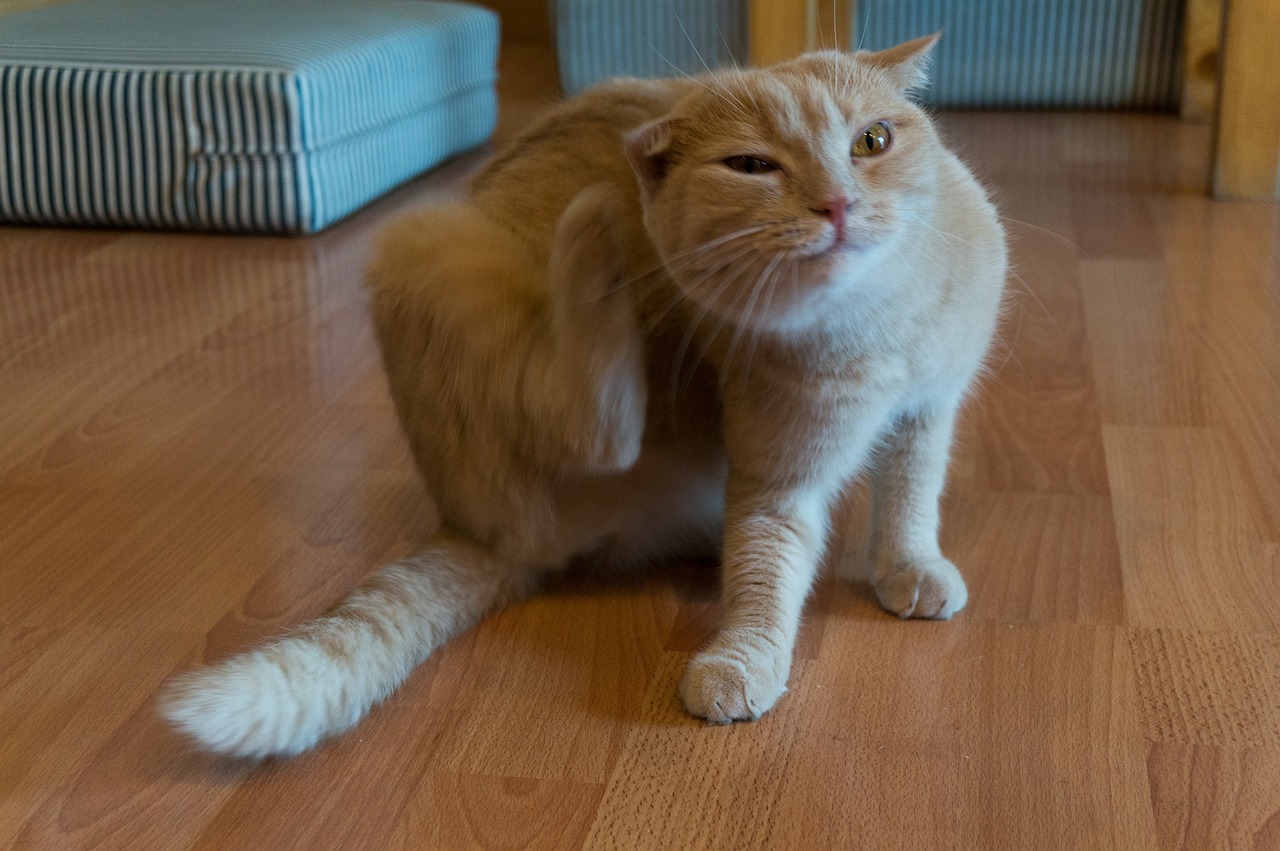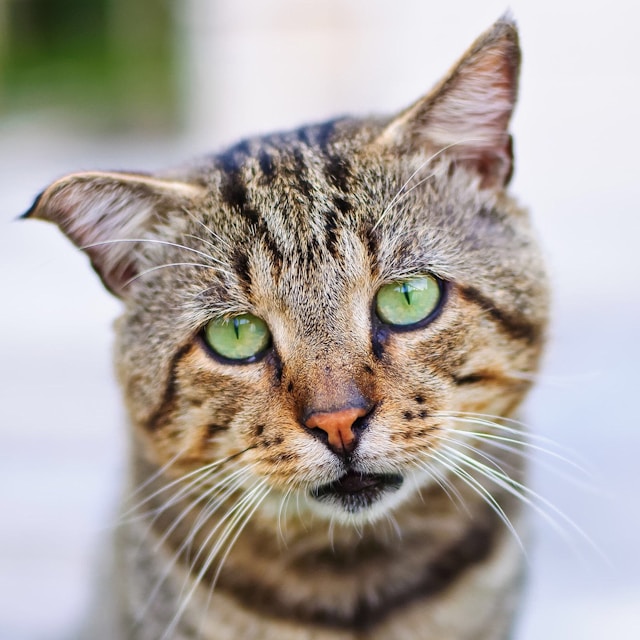Somali
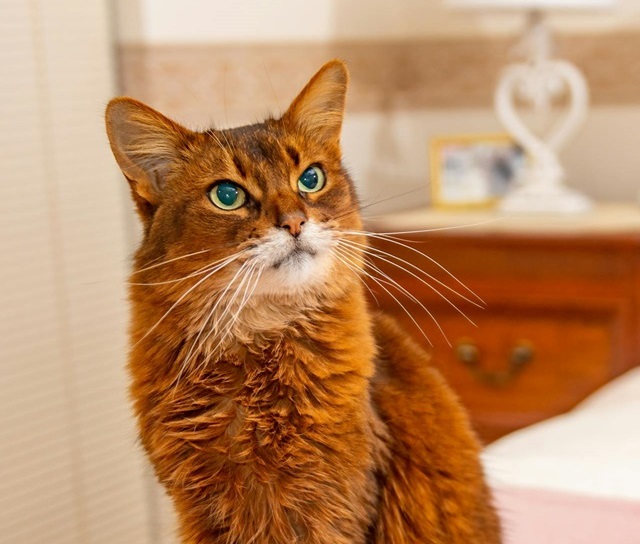
| Official Name | Somali |
| Common Name | Somali |
| Pet Height | 7 to 11 inches |
| Pet Weight | 6 to 10 pounds |
| Lifespan | 11 to 16 years |
| Good With | cats, children, dogs, families, seniors |
| Temperament | bold, sociable |
| Intelligence | high |
| Shedding Amount | frequent |
| Playfulness | high |
| Energy Level | hyper |
| Vocal Level | when necessary |
| Coat Length | long |
| Colors | blue/gray, cinnamon, fawn, red/orange |
| Patterns | solid |
| Other Traits | easy to train, friendly toward humans, friendly toward other pets, friendly toward strangers, requires lots of grooming |
Though they may be mistaken for long-haired Abyssinians, Somali cats have a charm and character all their own. As Dianne Taylor, secretary of the Somali Cat Club of Great Britain, says, "They are very sociable and make the perfect family pet."
These bright, energetic cats love learning tricks, forming strong bonds with humans, and staying curious about their surroundings. With their playful and adventurous nature, Somali cats are loyal companions who bring joy and excitement into any household.
Appearance
The Cat Fanciers' Association recognizes four primary coat colors for Somali cats: red, ruddy, fawn, and blue. Some breeders around the world may offer Somalis in other rare colors, such as tortoiseshell or tabby patterns, but most breeders or official associations don't widely accept these.
In many ways, a Somali's coat is similar to that of an Abyssinian cat, just longer. However, as some experts note, there are short-coated Somalis whose fur is thicker than an Abyssinian's. Both breeds share a distinctive feature known as "ticking," where each hair has bands of different colors from the base to the tip. Most Somalis come in the ruddy or orange/red color range, which, combined with their fluffy tails, has earned them the nickname "fox cats."
These medium-large cats usually weigh between 6 and 10 pounds. They stand out with their large almond-shaped eyes, prominent pointed ears, and striking facial markings, all of which are key characteristics of the Somali breed.
Personality
Get ready for a whirlwind of activity if you're considering a Somali cat! This breed isn't for those seeking a laid-back, calm companion. Somalis are lively and playful and love being the center of attention. If you teach them how to fetch, brace yourself—once they catch on, they'll want to keep playing nonstop.
"Somalis are as close as it gets to having a dog," says Taylor. "They'll follow you around, bring back toys, and be glued to your side. Whatever you're doing, they'll want to be involved."
Because Somalis are full of energy and incredibly smart, it's important to ensure they get enough exercise to keep them happy. Structured playtime also helps strengthen the bond between you and your Somali.
"The key to keeping them content is keeping them active," explains Dr. Carol Margolis from the Gold Coast Center for Veterinary Care. "It's not just about waving a toy around—true bonding comes from engaging with them, getting in on the action, and being part of their play. If you're not getting a little winded, you're probably not playing enough!"
Somalis can make a toy out of just about anything. Ping-pong balls, paper scraps, or even twist ties—if it's small enough to bat around, they'll have fun with it. They love to climb, explore, and even snoop around the house. Some are so clever that they learn to open cabinets or turn on faucets for a splash of water.
These cats are natural performers. They love learning new tricks and being in the spotlight. "There's nothing quite like seeing a joyful Somali, tail high in the air, chirping as she dashes by," Taylor says. "Their energy is boundless, and they seem to stay that way throughout their lives."
Living Needs
The Somali cat is known for its love of climbing, so if you don't have tall cat trees, shelves, or condos for them to explore, they'll find their way to the highest spot in the room—whether it's the top of a bookshelf, a door, or even the refrigerator.
Because they are extremely social cats, Somalis don't do well when left alone for long periods. If you leave them home without any companionship, they might develop separation anxiety. To keep them entertained while you're away, it's important to provide interactive toys, scratching posts, or puzzle games to keep their minds busy.
Somalis are also great at getting along with others, whether it's people or other pets. They're especially good with school-age children who can match their playful energy. Strangers are welcome too, and they tend to get along well with other cats (especially Abyssinians or other Somalis), cat-friendly dogs, and even larger pets like ferrets or rats.
Care
Taking care of a Somali cat means getting used to plenty of brushing! Their beautiful, long, silky coat sheds regularly, and even more so during the summer when they lose their thick winter fur. According to Taylor, a daily combing session is a must to keep their coat smooth and tangle-free. Plus, with that big, fluffy tail, you might occasionally find yourself dealing with some surprises from the litter box like you're on a little treasure hunt!
Aside from grooming their coat, you'll also need to follow the usual cat care routine: trimming their claws regularly, cleaning their ears, and making sure their litter box stays clean and fresh.
Health
Somali cats are generally healthy, much like their close relatives, the Abyssinians. However, they can be prone to a condition called Pyruvate kinase deficiency (PKDef), a genetic disorder that can lead to anemia. To avoid this, choosing a responsible breeder who screens for health issues in their cats before you bring a Somali kitten into your home is important.
Aside from that, as your Somali ages, you'll want to be mindful of common cat health concerns like arthritis, heart disease, and kidney problems. It's also a good idea to keep an eye on their dental health since they can be prone to periodontal disease. Regular teeth cleaning, both at home and with the help of a vet, will help keep your Somali healthy and happy for years to come.
Exercise Requirements
Exercise is vital for every cat's health, but it's especially important for Somali cats due to their high energy levels. If your Somali is mostly an indoor cat, you'll need to provide plenty of ways to keep them active. Cat trees and toys are helpful but won't be enough on their own—interactive play is key. Whether it's with you or another pet, they need regular engagement. If your Somali has outdoor access, they'll naturally stay active and entertained through exploration and curiosity.
Training
Somalis are incredibly smart cats, which makes training them relatively easy. Their natural curiosity and playful personality mean they enjoy learning new tricks and commands. In fact, they can be a bit like dogs when it comes to fetching toys and responding to verbal cues. If you turn training into a fun, interactive game, your Somali will pick things up in no time!
History
According to the Cat Fanciers' Association (CFA), long-haired kittens have occasionally appeared in Abyssinian litters due to a recessive gene for many years. However, breeders often didn't embrace these kittens, choosing instead to place them as pets rather than showcase them at cat shows.
There's ongoing debate about how the long-haired gene originally entered the Abyssinian breed, and it's unclear who first started breeding these long-haired Abys. Despite the mystery, we do know that an American woman named Evelyn Mague played a key role in establishing the Somali breed, which comes from these long-haired Abyssinians. In 1979, thanks to her efforts, the CFA officially recognized the Somali breed, allowing it to compete as a champion.
Fun Facts
The Somali cat isn't originally from Somalia; it got its name because of its strong genetic ties to the Abyssinian breed. Since Somalia is located next to what used to be called Abyssinia (now Ethiopia), breeders thought the name was a fitting choice.
One of the most famous Somali cats on social media is Errol, who has charmed over 100,000 followers on Instagram. With his striking looks, he's genuinely a heartthrob!
Get insurance plans with wide-ranging coverage options








